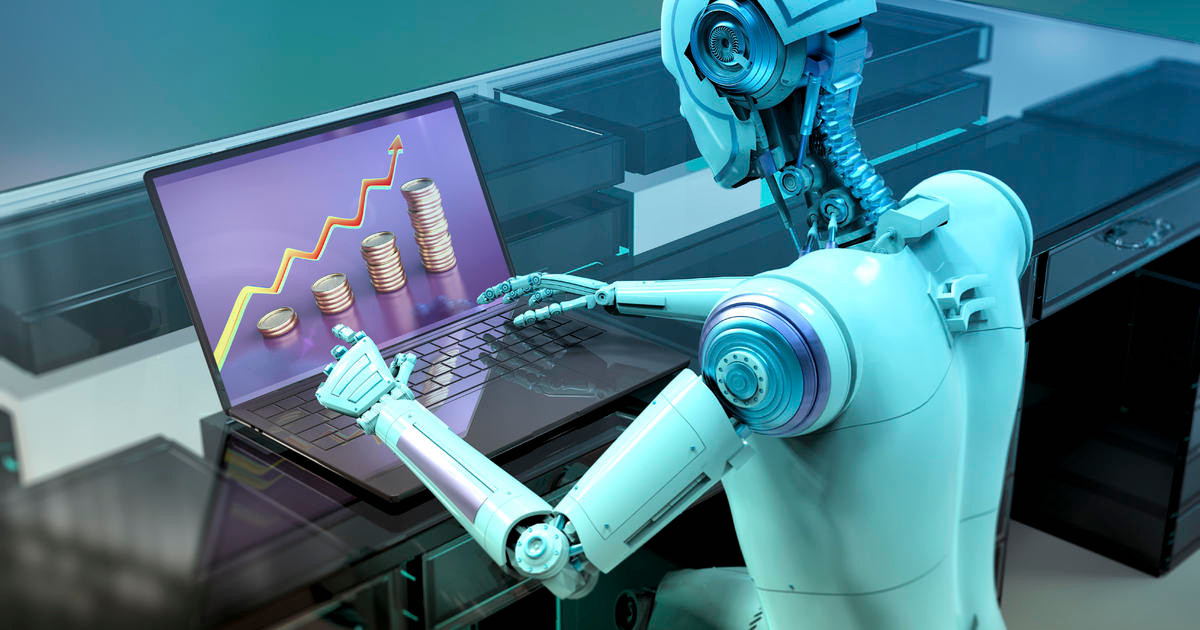Artificial intelligence will impact 40% of the global workforce in the next 3 years
(Baonghean.vn) - A new study published by IBM (USA) shows that about 40% of the global workforce, equivalent to about 1.4 billion workers, will have to retrain in the next 3 years due to the impact of artificial intelligence (AI) deployment.

Generative AI models like ChatGPT can perform a variety of tasks, such as answering fluently and completely any question you ask them, regardless of the field. In addition, ChatGPT can also write poetry, compose music, write letters, design, and even fix programming errors. Many people have used ChatGPT to do these things, which has made AI smarter and smarter.
With ChatGPT's intelligence, many people fear that this technology will replace their jobs. A new study by IBM shows that people should not fear this technology but rather take advantage of the benefits it brings.
IBM's report analyzes how the emergence of AI is affecting companies' business models, specifically how they leverage AI to perform their operations and how it affects job roles.
To answer these questions, IBM drew on data from two previous studies, one survey of 3,000 executives in 28 countries and another of 21,000 workers in 22 countries. The results suggest that AI will certainly create changes in the workforce and businesses, but not necessarily for the worse.
Surveyed executives estimate that about 40% of their workforce will need to be reskilled in the next three years due to the impact of AI deployment, representing about 1.4 billion workers out of a global working-age population of 3.4 billion.
However, 87% of those executives expect generative AI to augment roles rather than replace them.
According to research from IBM's IBV Institute for Business Value, technology adopters who reskill to adapt to technology-driven job changes have an average of 15% higher revenue growth rate, and those focused on AI show 36% higher revenue growth rate than their peers.
IBM's report states that AI technology will not replace humans, but those who use AI will replace those who do not use AI. Tools like ChatGPT allow workers to do more with less knowledge.
With the growth of ChatGPT, people are paying more attention to skills like team management, teamwork, effective communication and adaptability to change.
However, the initial craze for generative AI appears to have turned into caution as organizations and businesses are now mandating or considering bans on the use of such tools.
According to a study conducted by BlackBerry (Canada) in June and July of this year, which polled 2,000 IT decision-makers in Australia, Japan, France, Germany, Canada, the Netherlands, the US and the UK, about 75% of businesses worldwide are currently implementing or considering plans to ban ChatGPT and other generative AI applications in their workplaces. Of these, 61% said such measures would be applied permanently or in the long term.
Respondents cited risks related to data security, privacy, and brand reputation as reasons for the ban. 83% of those surveyed were concerned that insecure apps posed a security threat to their IT environment.
Regardless of security concerns, most recognize the opportunities that generative AI can bring, with 55% seeing increased work efficiency; 52% believing the technology can drive innovation, while 51% believe it will enhance creativity.
Regarding this issue, Mr. Shishir Singh - Chief Technology Officer in charge of cybersecurity at BlackBerry said: "Banning generative AI applications in the workplace could mean that countless potential business benefits are extinguished. Companies should look to innovate with generative AI, focus on value rather than hype, and be cautious when handling generative AI tools for unsafe users."
“As generative AI platforms mature and relevant regulations come into effect, flexibility can be built into organizational policies. It is important to have the right tools to display, monitor and manage applications used in the workplace,” added Shishir Singh, CTO.
Jobs at high risk of being replaced by AI
A recently published study by the US multinational investment bank Goldman Sachs strongly states that the job loss and impact of AI will vary across industries and sectors. The administrative and legal sectors will be most affected, with 46% and 44% respectively at risk of being replaced by AI.
Jobs with the least exposure to AI include cleaning and maintenance, installation and repair, and construction-related jobs.
Physically intensive occupations face low risks, with the construction sector facing just a 6% threat while maintenance-related work is only at a 4% risk.
Regarding the employment issue when AI chatbots like ChatGPT appear, Sam Altman - CEO of OpenAI - the father of the ChatGPT application, said that the jobs that are greatly affected by ChatGPT include writing or programming jobs.
He believes that jobs that involve scientific and critical thinking are less likely to be affected by automation. Additionally, tax preparers, digital interface designers, writers, administrative assistants, mathematicians, and blockchain engineers are among the jobs that will be affected by the advent of AI chatbots like ChatGPT.
According to Mr. Sam Altman, high-paying jobs are more susceptible to ChatGPT than simple jobs such as chefs, carpenters, plumbers, maids, waiters, farmers, etc. In short, jobs that do not require a high level of education will be less affected.


